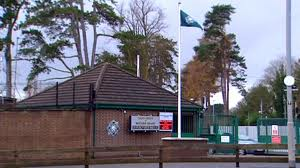 THE PSNI is supporting a campaign by Get Safe Online urging members of the public to protect themselves against powerful malicious software (malware), which may be costing UK computer users millions of pounds.
THE PSNI is supporting a campaign by Get Safe Online urging members of the public to protect themselves against powerful malicious software (malware), which may be costing UK computer users millions of pounds.
Action taken by the National Crime Agency to combat the threat will give the UK public a two-week opportunity to rid and safeguard themselves from two distinct but associated forms of malware known as GOZeuS and CryptoLocker.
The NCA’s alert is part of one of the largest industry and law enforcement collaborations attempted to date. Activity in 11 countries, led by the FBI in the US, has weakened the global network of infected computers, meaning that action taken now to strengthen online safety can be particularly effective.
GOZeuS (also known as P2PZeuS) has been assessed as being responsible for the fraudulent transfer of hundreds of millions of pounds globally. Recent intelligence has suggested that more than 15,500 computers in the UK are currently infected, with many more potentially at risk.
By disrupting the system used by the infected computers to communicate with each other, and the criminals controlling them, this activity aims to significantly reduce the malware’s effectiveness.
Members of the public can protect themselves by making sure security software is installed and updated, by running scans and checking that computer operating systems and applications are up to date.
Individuals may receive notifications from their Internet Service Providers that they are a victim of this malware and are advised to back up all important information – such as files, photography and videos. Businesses should also test their incident responses and business resilience protocols and work with their IT departments or suppliers to educate employees on the potential threat.
The non-profit awareness organisation Get Safe Online is providing advice, guidance and tools on its website at www.getsafeonline.org/nca to help internet users understand more about the malicious software and how to protect themselves and their computers from attacks. A number of leading cyber security companies have supplied remediation tools, which can be accessed via getsafeonline.org to help clean up infected machines.
GOZeuS and CryptoLocker
Users are typically infected by clicking on attachments or links in emails which may look like they have been sent by genuine contacts and may purport to carry invoices, voicemail messages, or any file made to look innocuous. These emails are generated by other victims’ computers, who do not realise they are infected, and are used to send mass emails creating more victims.
If the file or link is clicked on an unprotected computer, GOZeuS is downloaded and installed and it will then link the victim’s computer to a network of already infected machines known as a BotNet.
The malware waits silently, monitoring the user’s activity until the opportunity arises to capture banking or other private information, which is then transmitted back to the criminals via the BotNet infrastructure.
Where a computer infected with GOZeuS turns out not to offer a significant financial reward, it can ‘call in’ CryptoLocker, to give the criminal controllers a second opportunity to acquire funds from the victim.
CryptoLocker works away in the background, encrypting the user’s files. Once that process is complete, the victim is presented with a pop-up telling them what has happened and a timer appears on their screen, which starts counting down. That is the time the victim has in order to pay a ‘discounted’ ransom, currently one Bitcoin (£200-£300 approximately) for UK users.
Information on ensuring security software is up to date can be found at www.getsafeonline.orgexternal link opens new window and www.cyberstreetwise.com
Members of the public who think they have lost money through malware such as P2PZeus and Cryptolocker should report it to www.actionfraud.police.uk




Pingback: Cyber Attack - Windows - Internet Crime Fighters Organization